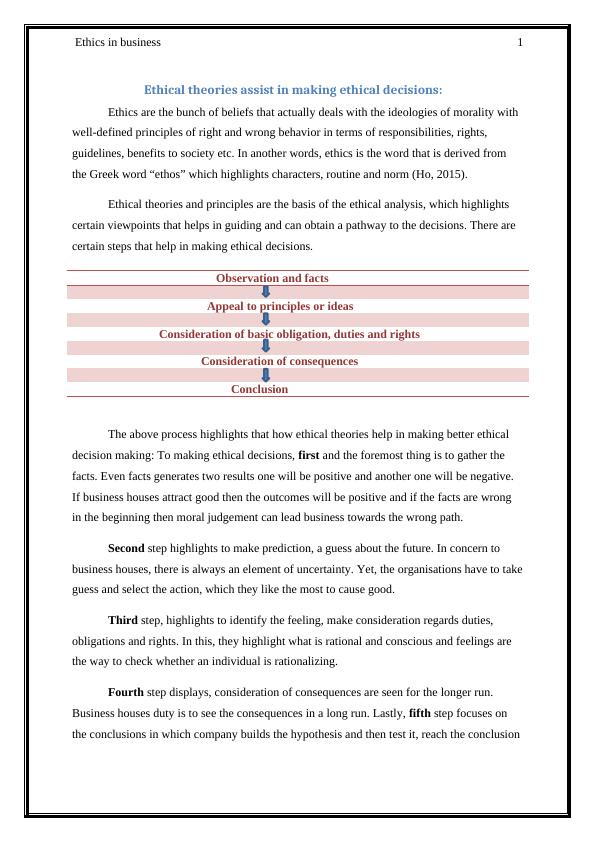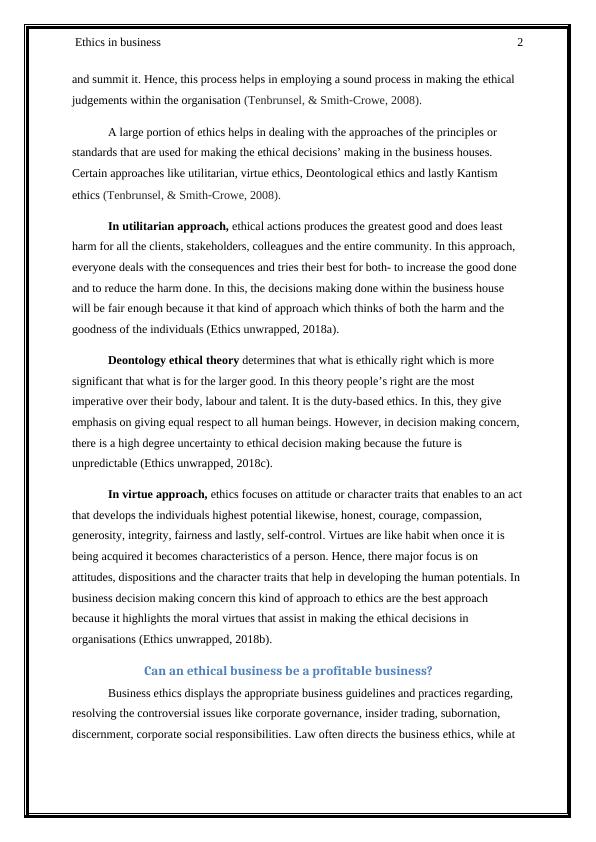Ethics in Business: Making Ethical Decisions and Approaches
6 Pages1659 Words227 Views
Added on 2023-04-20
About This Document
This article discusses the process of making ethical decisions in business and explores different ethical theories and approaches. It also examines the relationship between ethical business practices and profitability.
Ethics in Business: Making Ethical Decisions and Approaches
Added on 2023-04-20
ShareRelated Documents
End of preview
Want to access all the pages? Upload your documents or become a member.
IT Ethical Issues
|7
|1706
|198
The Importance of Business Ethics Report
|10
|1447
|49
Risk perception and Analysis - Assignment
|6
|1646
|28
Introduction to Ethics and Society
|6
|904
|83
Theories of Ethics: Just Consequentialism, Utilitarianism, and Deontology in Information Ethics
|4
|731
|141
Business Ethics at NIKE : Essay
|11
|4302
|340



